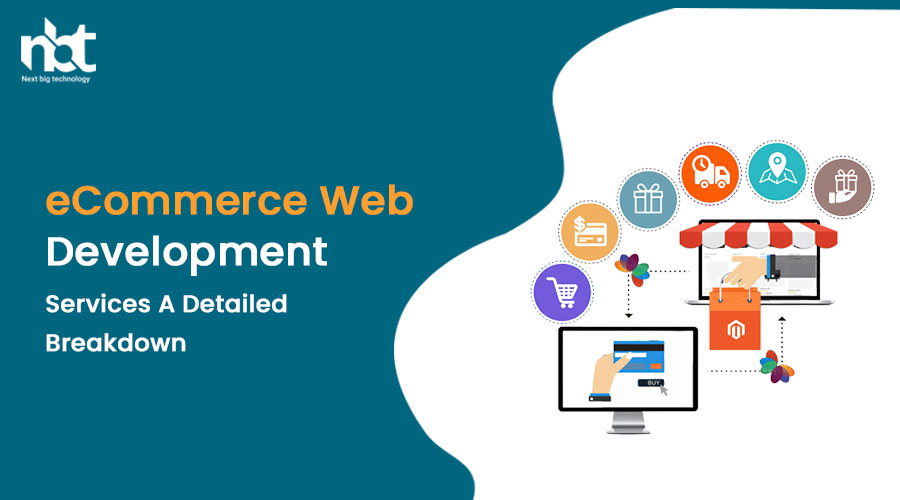Introduction: eCommerce has revolutionized the way businesses operate, providing opportunities to reach a global customer base and sell products and services online. To tap into the potential of eCommerce, businesses require robust and feature-rich websites. In this blog, we will provide a detailed breakdown of eCommerce web development services, exploring the essential components involved in creating successful eCommerce websites.
- User Interface (UI) and User Experience (UX) Design: UI and UX design are crucial for creating visually appealing and user-friendly eCommerce websites. Key aspects of eCommerce UI/UX design include:
a) Responsive Design: Creating websites that are optimized for various devices, including desktops, tablets, and smartphones, ensures a seamless user experience across different screen sizes.
b) Intuitive Navigation: Implementing a clear and intuitive navigation structure, including menus, search functionality, and filters, makes it easy for users to find products and navigate through the website.
c) Product Display and Imagery: Showcasing products with high-quality images, detailed descriptions, and relevant information helps users make informed purchasing decisions.
- Product Catalog Management: Effective product catalog management is essential for eCommerce websites. Key features of product catalog management include:
a) Product Categories and Subcategories: Organizing products into logical categories and subcategories allows users to navigate the website easily and find products of interest.
b) Product Variations and Options: Managing different product variations, such as size, color, and style, ensures accurate inventory management and provides users with options to choose from.
c) Inventory Management: Tracking and managing inventory levels, updating stock availability, and providing real-time information to users prevents overselling and improves customer satisfaction.
- Shopping Cart and Checkout Process: The shopping cart and checkout process are critical components of an eCommerce website. Key features include:
a) Add to Cart: Enabling users to add products to their cart and review their selections before proceeding to checkout.
b) Secure Payment Gateway Integration: Integrating a secure and reliable payment gateway allows users to make payments securely, supporting multiple payment methods and ensuring data protection.
c) Guest Checkout and Account Creation: Offering both guest checkout and account creation options provides flexibility for users, allowing them to make quick purchases without the need for account registration.
- Order Management and Fulfillment: Efficient order management and fulfillment processes are vital for eCommerce websites. Key features include:
a) Order Tracking: Providing users with the ability to track their orders and receive updates on shipment status enhances transparency and customer satisfaction.
b) Shipping Integration: Integrating with shipping carriers and calculating shipping costs based on factors such as weight, dimensions, and destination ensures accurate shipping charges.
c) Inventory and Stock Management: Automatically updating inventory levels, generating purchase orders, and managing stock availability helps streamline the order fulfillment process.
- Customer Relationship Management (CRM): CRM functionality helps businesses maintain strong customer relationships and improve customer satisfaction. Key features include:
a) Customer Account Management: Enabling customers to create accounts, manage their profiles, view order history, and save preferences enhances the overall customer experience.
b) Customer Support Integration: Integrating customer support features such as live chat, FAQs, and contact forms allows users to seek assistance when needed.
c) Personalization and Marketing: Implementing personalized recommendations, targeted promotions, and email marketing campaigns helps businesses engage customers and drive repeat purchases.
Conclusion: eCommerce web development services encompass various components that are essential for creating successful online stores. From UI/UX design to product catalog management, shopping cart functionality, order management, and customer relationship management, each component plays a vital role in delivering a seamless and engaging user experience. By leveraging the expertise of experienced eCommerce web developers, businesses can create robust and scalable eCommerce websites that cater to their specific needs and help drive online sales. Whether you’re starting a new eCommerce venture or looking to enhance your existing online store, investing in professional eCommerce web development services is key to achieving long-term success in the competitive eCommerce landscape.










